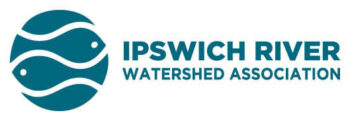FISHING & CLAMMING
Photo by Andrew Bosari
The Ipswich River is one of the premier trout fishing areas in southern New England and Ipswich clams are known nationwide – there are none better! Keeping the Ipswich River clean and flowing supports the industry, recreation and biodiversity that depend on the river's fish and macroinvertebrates.
HISTORY
In the distant past, native Americans of the Agawam tribe fished along the Ipswich River, as is evidenced by mounds of shell fragments (known as middens), bits of pottery and other artifacts which have been found along the river bank. Captain John Smith referred to this region as the “land of promise” because of its abundant fisheries and mature forests.
In early colonial days, the spring runs of herring, shad and other anadromous fishes were amazingly bountiful. The harvest of alewife (river herring) as far upstream as Wilmington and North Reading was an important part of the local economy in those early days. Wenham Lake, now a public water supply reservoir, was the most important alewife nursery in the region.
Today, the Ipswich River is heavily impacted by water withdrawals and dams, which have changed its ecology drastically, especially impacting the native fishery. Species which require flow are at a disadvantage, and the river is dominated by warm water species. Restoration efforts are underway to restore river connectivity and fish habitat.
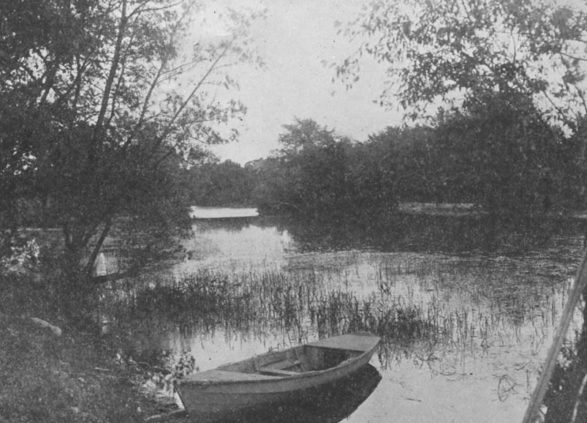
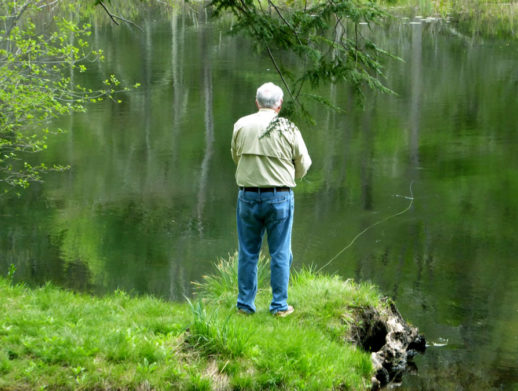
FISHING THE RIVER
Since half the fun of fishing is searching for your favorite spots, we’ll just provide some basic information here. The bridges are easy to find, though fishing from a canoe or kayak will allow access to many river miles, especially to places like Wenham Swamp, a large wetland with lots of places for fish to hide.
The tributaries, some of which are steeper and more gravelly than the mainstem, offer good fishing and many are not as affected by water withdrawals as the mainstem.
Department of Fisheries Wildlife and Environmental Law Enforcement stocks numerous locations on the mainstem of the river with trout. They also stock Fish, Mosquito, Pye, Howlett and Boston Brooks; Berry, Stiles and Pleasant Ponds; and Silver Lake.
Ipswich River has largemouth bass and other species. The best riffles on the river are: Mill Street in Reading, Rte 62 in North Reading, below the S. Middleton Dam off Boston Street in Middleton, Log Bridge Road in Middleton, below Route 1 in Topsfield, downstream of the Willowdale Dam in Hamilton, and near Mill Road in Ipswich.
Stiles Pond has good fishing for smallmouth bass.
Hood Pond has largemouth bass and other species
Fishing licenses are required for those 15 and older; get them at your town or city hall, some sport shops or call the Department of Fisheries Wildlife and Environmental Law Enforcement.
There is a mercury advisory for fish from some locations in the watershed, and recent research indicates a mercury problem along the mainstem of the river. All the more reason to catch and release. We hope you’ll also consider barbless hooks, and of course get the lead out of the sinkers!
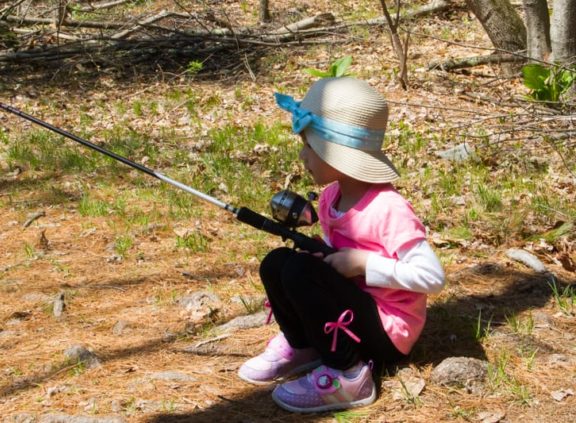
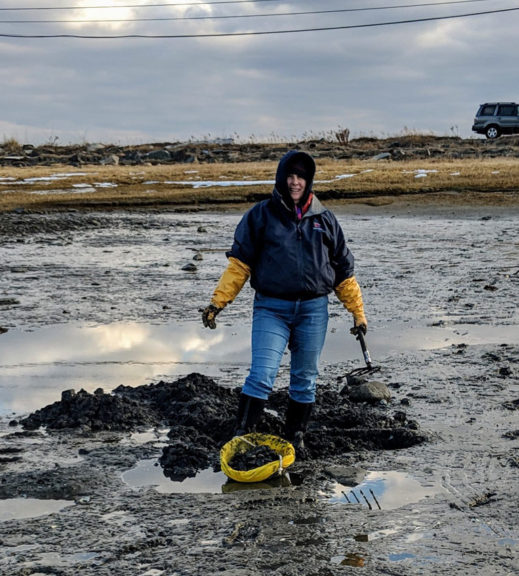
FISHING THE ESTUARY & COAST
The estuary and coastal waters provide some great fishing for striped bass and bluefish. Fish for stripers from May through October, and bluefish arrive in midsummer. Saltwater fly-fishing in the estuary is becoming a more common pastime, and the Town Landing in Ipswich provides public access to put boats in
The coastal zone of the Ipswich River is actually very small and affords limited access to the shoreline. While Massachusetts law allows the public to use the area between the low and high tide lines for fishing, please do not assume that you can cross private property to reach the water.
CLAMMING
Ipswich clams are known nationwide – there are none better!! Thanks to a successful effort to reduce pollution in the Town of Ipswich, the Ipswich River’s famous clam and mussel beds are now open to harvest (conditionally) for the first time in decades. Clammers will need a boat unless they have permission from shoreline landowners to cross their land. Recreational clamming permits may be obtained from the Ipswich Town Clerk at Town Hall.
Be aware that clambeds are closed to harvest for several days after heavy rains. Don’t forget to check the tide charts!
The Ipswich River suffers extreme low-flow and no-flow problems, especially in summer and early fall. Riffles are the first areas to dry up, which causes the river to segment into a series of isolated pools. Water also recedes from the banks, making these critical habitats useless. These are chronic problems, especially in the upper river, so fishing there is usually best in the spring.
You can help in our mission to ensure there is enough clean, flowing water for people and wildlife.
